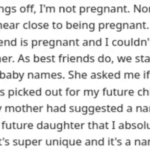Any woman or person who menstruates, knows the annoyance of heavy periods. For some, they’re a freak occurrence, for others, heavy periods are the bane of our monthly existence until menopause hits. While there are plenty of medical options to control and lighten periods, there’s a disturbing trend that seems to have women trying all new dangerous “home remedies” and “DIY” methods in order to end their periods early – one of which involves a vacuum!
There’s a tweet that has gone viral by a nurse who warning women against using a vacuum to “suck out all the blood” during their periods – a terrifying method women are actually attempting. As per the nurse’s tweet, two women have ended up in the hospital following their home attempts to end their periods in the manner, reported Health.com.
The nurse, who goes by the user name OdesseyT99 on Twitter, took to the website in order to report that she’s had to deal with two different cases of women using vacuums to try to end their periods.
She wrote: “Ladies…Please stop using your vacuum hose to end your period early. You’re gonna wind up sucking out a lot more than blood! There were two cases of this so far this week and both women had to be admitted. Just…STOP!”
Since posting, the nurse’s tweet has been retweeted over 2,400 times and received more than 5,000 likes. People who experience periods and menstruation were shocked by the realization that some women would actually try such harmful methods just to end their periods.
One user, BougieVyntage, asked: “I’m sorry, what? Why would anyone ever think to do such a thing?”
Gingernightowl posted: “I wanna know where they got the idea. Just hanging around with friends and then, oh! Let me stick this vacuum cleaner up my hooch and suck all my period away. All it’s gonna do is give people an idea on how to abort…and with the way of the with women’s rights…”
Supposedly, the disturbing trend started following an article which featured “menstrual extraction” as the topic of discussion – a method developed by feminist activists in the 1970s to both get their entire periods over and done with at once, or perform “at-home” abortions. As anyone could expect, the process is both extremely dangerous and can result in permanent damage. While the practice began in origin as the “Del-Em” procedure, where a thin tube is used to extract a period flow into a container, it has evolved into the use of vacuum cleaners to perform essentially the same thing.
After reading the tweet, Health.com got in contact with Sophia Yen, MD and a clinical associate professor at Stanford School of Medicine, who confirmed that the practice of menstrual extraction is indeed quite harmful.
“It’s not safe because the body wants to shed in a safe way. To me, it would be like ripping off a scab. It’s disrupting a natural, safe process. It might make you bleed more – your body’s shedding and trying to heal,” Yen stated.
Her comment is something that was also confirmed by the nurse behind the tweet.
She followed up with a second tweet that read: “Your period has a steady flow of its own that for all intents and purposes your body can tolerate. A vacuum increases that flow over a [thousand] times which your body can’t tolerate, therefore sending you into shock.”
The nurse was quick to point out that the women who had come in seeking treatment, were extremely lucky that they had not died.
If you’re someone who would like to lighten or better manage their period, or you know of someone who would, Health.com suggests following Dr. Yen’s advice. Birth control pills are usually used to control period bleeding, or there’s consuming 600 milligrams of ibuprofen three times a day, for up to five days. The ibuprofen route can decrease bleeding by up to 30 percent.
And if neither of these sound like options to you, then talk to your doctor for other alternatives that would be right for you. But don’t go using a vacuum. And hopefully this will be a reminder to all people who experience menstruation to exercise caution when it comes to period health.






